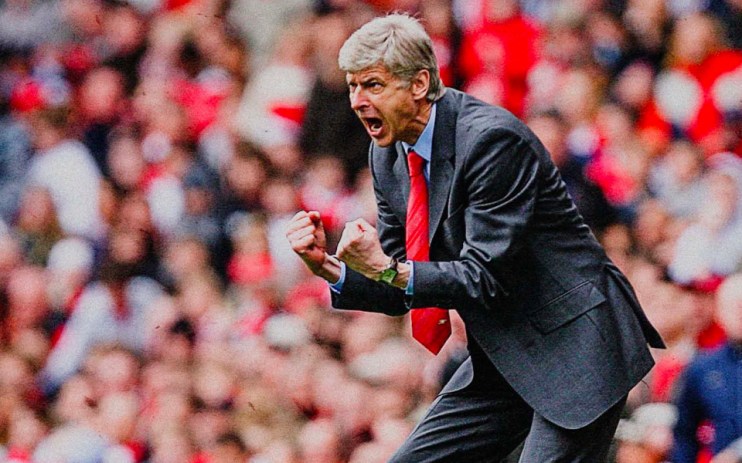Arsene Wenger: Invincible review – a portrait of a thoughtful legend

In October 1996, Arsene Wenger officially became the manager of Arsenal FC. What he would over the next two decades would redefine both the club and English football, introducing new methods and ideas that are now commonplace across the country. A quarter of a century on from that appointment, having stepped down from the role in 2018, Wenger follows up his recent memoir with a documentary, the inevitably titled Arsene Wenger: Invincible.
“The meaning of my life was football” Wenger begins. “Sometimes I’m afraid by that, to dedicate your whole life to that is a bit frightening”. Largely narrated by its subject, the film is by and large a look at the good times. His arrival to universal bemusement in the 90s, finding an English drinking culture at the club and turning it into a modern European sports facility. The film is a straight forward account of his prime years, touching on the 1998 and 2002 title wins before largely focusing on the unbeaten 2003-04 “Invincibles” season.
Along the way, there is a disarmingly honest portrait of the man. His job is his obsession, living a “monastic existence” according to his former players, but one that comes with a personal price. “I feel guilty” he says of his all-consuming drive to win which put his personal life second. “My passion facilitated my selfishness”. Perhaps it’s the poetic French delivery, but it’s a more personal account that most sporting biographies.
There’s also an appearance from Wenger’s nemesis, Sir Alex Ferguson. As blunt as his rival is measured, the Manchester United great bristles when recalling the “toxic” height of what Wenger called “the duel” between the two. Hostilities have clearly cooled, with the Scot seeing some kinship between them in terms of their working-class roots.
While Wenger did grow up in an industrial French village, to his own admission there is little of that in his management methods, as the film shows the philosophical side of the man. Viewing football as art, he talks in inspirational quotes (“success is easy to absorb, a defeat remains forever”) and obviously still thinks deeply about the game, and his career.
The interviewees are a mixed bag, comprising mainly of players from his 98 and 04 glory years. Ian Wright and Thierry Henry sparkle with passion, while on the other end of the scale Dutch striker Dennis Bergkamp looks like he’s waiting for a bus. An interesting mix is Invincibles Captain Patrick Vieira, a softly spoken man who shows flickers of competitive aggression (when talking about an infamous fight with United played in 2004, he purrs “I loved it”). One notable omission is his first captain, Tony Adams, who was critical of his former boss during the final years of his reign.
It’s a well-crafted nostalgia ride for any Arsenal fan who was there, and brought a smile to this Gooner more than once. As a film, however, there are some bumps in the road. The sequences in Wenger’s childhood home don’t reveal much, and the filmmakers also have a problem with their ending. While the man made the club what it is today, the move from Highbury stadium to The Emirates in 2006 led to slow decline that saw him lose the loyalty of the fans, and leave (in Vieira’s words) “by the back window” in 2018. It’s a period that clearly still hurts, and while it’s hard to swallow Wenger’s insistence that those barren years were “his best work”, there is a salient point made about the fickle nature of sport.
ITV Football favourite Clarke may not capture the raw humanity of his previous work, the devastating Finding Jack Charlton, but in Arsene Wenger: Invincible he captures a legend at his most thoughtful. A must see for everyone but Tottenham fans.
Arsene Wenger: Invincible is in cinemas from 12th November, and on home video formats from 22nd November.